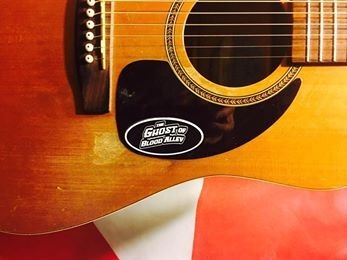Learning Music as a Boomer/Senior
We were deep in conversation, about this and that and the discussion drifted to music and creating music. I was asked how my son and his band were doing, and then the questions became focused on the skills involved in creating music, one of the questions asked was “how do people who create music do it”? Great question, my son can create music and then put lyrics to the music he created. His band and songs are doing quite well on the Net, they currently have three songs in the top 100 under the category of Folk in Canada. (The Band is called “The Ghost of Blood Alley”) However, this skill was not passed down from either his mother or I. I cannot carry a tune, let alone play any musical instruments. I think that there is some genetics involved because my daughter, as well as all of my Nieces and Nephews, have the ability to play and write music.
So, when the question was asked none of the group had the answer although we all knew that learning music as a senior had some health benefits. Music has been found to stimulate parts of the brain, and studies have demonstrated that music enhances the memory of Alzheimer's and dementia patients, including a study conducted at UC Irvine, which showed that scores on memory tests of Alzheimer's patients improved when they listened to classical music.
Adults age 60 to 85 without previous musical experience exhibited improved processing speed and memory after just three months of weekly 30-minute piano lessons and three hours a week of practice, whereas the control group showed no changes in these abilities.
Playing an instrument as a kid leads to a sharper mind in old age, according to a new study conducted by Brenda Hanna-Pladdy, a clinical neuropsychologist in Emory’s Department of Neurology, and her colleagues. The researchers gave 70 people between the ages of 60 and 83 a battery of tests to measure memory and other cognitive abilities. The researchers found that those who had played an instrument for a decade or longer scored significantly higher on the tests than those with no musical background
Cognitive and neural benefits of musical experience continue throughout the lifespan, and counteract some of the negative effects of aging, such as memory and hearing difficulties in older adults. Involvement in participatory arts programs has been shown to have a positive effect on mental health, physical health, and social functioning in older adults, regardless of their ability. The arts also contribute to communicating, building the sense of identity, preserving or restoring social capital, and strengthening social networks in communities.
Research shows that music activities (both music listening and music making) can influence older adults’ perceptions about the quality of their lives. Some research has examined the effects of music listening on biological markers of health and subjective perceptions of well-being. Other studies on the psychological and social benefits associated with music making activities have demonstrated that participants often place considerable value on these “nonmusical” benefits of music activity.
Playing music "significantly" lowered the heart rates and calmed and regulated the blood pressures and respiration rates of patients who had undergone surgery.
Anger Management Music therapy can help people identify the emotions that underlie anger and increase the patient's awareness of these feelings and situations that can trigger them. If a situation or emotion is presented in a song the healthy options for expressing that feeling can be discussed and conflict resolution and problem-solving can be practiced in a positive manner.
Playing a musical instrument can reverse stress at the molecular level, according to studies conducted by Loma Linda University School of Medicine and Applied Biosystems. Playing music increases human growth hormone (HgH) production among active older Americans. The findings revealed that the test group who took group keyboard lessons showed significantly higher levels of HgHthan the control group of people who did not make music
Alzheimer's patients who drum can connect better with loved ones. The predictability of rhythm may provide the framework for repetitive responses that make few cognitive demands on people with dementia

Articles from Royce Shook
View blog
One of my cousins sent me this as I was born in Saskatchewan. My first thought was these are the rea ...

Ah, retirement. The time in life when you can finally ditch that 9 to 5 grind and start living it up ...

5 - Fifth Important Lesson - Giving When it Counts. · My thanks to Aubrey and Ron for the following ...
You may be interested in these jobs
-
staffing co-ordinator
Found in: Talent CA 2 C2 - 1 week ago
Wayback Burgers Winnipeg, CanadaEducation: · Expérience: · Education · Bachelor's degree · or equivalent experience · Tasks · Identify current and prospective staffing requirements · Prepare and post notices and advertisements · Collect and screen applicants · Advise job applicants on employment requirements ...
-

Aide-livreur de nuit
Found in: beBee S2 CA - 1 week ago
Service alimentaire Gordon Boucherville, Canada TEMPORARYVous souhaitez vous joindre à une compagnie prospère en pleine croissance, guidée par des valeurs familiales, et qui vous offre des avantages compétitifs ? Étant le plus grand distributeur alimentaire privé en Amérique du Nord, Service alimentaire Gordon pourrait être l'endroit i ...
-
food counter attendant
Found in: Talent CA 2 C2 - 1 week ago
Sushi Shop Core Centre Calgary, CanadaEducation: · Expérience: · Education · No degree, certificate or diploma · Tasks · Replenish condiments and other supplies at tables and serving areas · Portion and wrap foods · Prepare, heat and finish simple food items · Serve customers at counters or buffet tables · Stock re ...


Comments